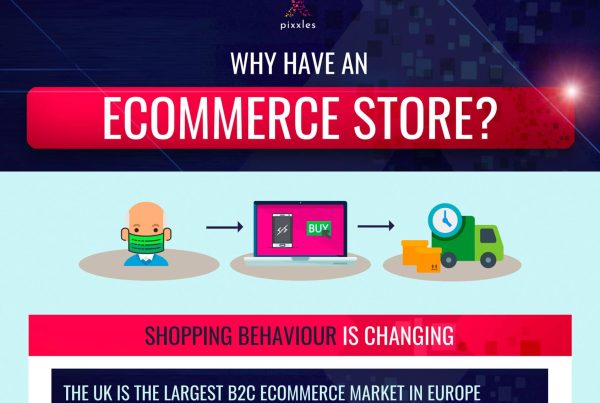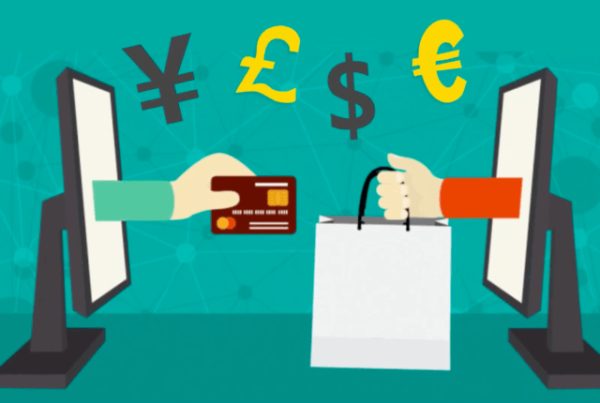It has never been easier to set up your own e-commerce business. Web hosts, credit card processors, and integrated solutions mean you’re always just a few clicks away from something that would have taken months and masses of capital in the pre-digital era.
But there are still some major decisions to make and big questions that need to be answered, one of which concerns merchant accounts and business accounts:
- What is a merchant account?
- What is a business bank account?
- What are the pros and cons of these options?
- Which one do you need?
- How do you apply?
At Pixxles, we know a thing or two about business banking, so let’s take a closer look at these questions.
What is a merchant account?
Merchant accounts act as intermediaries between your business bank account and the customer’s card issuing bank.
When a customer submits a debit or card payment, the funds are moved to the merchant account by the payment processor. These funds are then moved to a business bank account after 1 or 2 business days.
Businesses can’t access and use a merchant account in the same way as a business bank account. They must wait for the funds to be processed before they can be withdrawn or spent.
You might be wondering why merchant accounts are needed at all and why you can’t simply connect your bank account to your payment processor.
Well, it’s partly down to speed. Despite the extra step, merchant accounts avoid many of the delays associated with payment processing and ensure the money is transferred quickly.
If you were to connect your bank account directly, you’d need to wait for each transaction to be independently verified, and that’s just not feasible in the fast-paced world of online commerce.
Merchant accounts have a special relationship with major credit card providers. They also vet their merchants before opening new accounts and shoulder the burden of responsibility if anything goes wrong. This allows them to advance the funds even as the transactions are pending, which just wouldn’t happen with a standard bank account.
Pros and cons of a merchant account
As noted above, merchant accounts play a very important role in the world of online commerce. They improve security, provide legitimacy, and ensure that funds are moved quickly from one account to the next.
They’re all about streamlining the payment process.
One of the downsides of merchant accounts is that the business operator must undergo a lengthy vetting process to assess the level of risk. This process can take time and it may involve checking credit histories, recording outstanding debt, estimating transaction volume, and more.
At Pixxles, we’re able to provide a faster and more seamless due diligence process by doing all the work ourselves. We have our own team of underwriters and therefore don’t need to wait for third-party feedback.
We also understand that e-commerce is a nuanced industry and there is no one-size-fits-all solution. We work closely with our clients to ensure a more proactive approach to risk management.
Read “Why Pixxles” to learn more.
What is a business bank account?
A business bank account is simply a bank account owned and operated by a business. It serves as a repository for all of the business’s cash. Merchant accounts pay money into these bank accounts and cash is taken out of them to cover payroll, stock, and other expenses.
Depending on the type of account, a business bank account may also come with additional features, including savings accounts, investment accounts, mobile banking, and loans.
If you run a limited company in the United Kingdom, you are required to have a separate bank account to manage all of your business transactions. There is no legal requirement for sole traders, but it’s always a good idea to keep business and personal transactions separate.
Pros and cons of a business bank account
Unless you’re a sole trader, you are legally required to open a business bank account. And even if you are a sole trader, a business account will make your life much easier at tax time.
In these scenarios, there are no real cons to setting up a business bank account, other than the fact that it adds another job to your to-do list at a time when you may already be feeling overwhelmed.
Do you need a merchant account and a business bank account?
Ideally, you should have both a merchant account and a business account. The latter is a necessity (and sometimes a legal requirement) for any company in the UK while the former can speed up online payments.
At Pixxles, we provide both of these solutions in our e-commerce packages. Our card payment processing system can process a range of card payments in over 100 currencies, and the funds are then transferred to the merchant’s bank account.
Our merchants are also given a free bank account along with our payment processing platform, and this comes with features such as:
- No hidden fees
- Spend in over 100 currencies
- Accept payments in 180+ currencies
- Competitive currency exchange rates
- Faster payments
- Live support
- Dedicated account manager
Find out how to apply
To get the ball rolling on your e-commerce venture, apply today for a Pixxles account. We provide e-commerce brands with complete banking and payment processing solutions. Whether you operate exclusively in the UK and take payments online, in-person, over the phone, and via mail order, or you sell online products and services around the world, we can help.
Contact us today for custom solutions and discover how Pixxles can make your business faster, better, and more competitive.
Merchant and business bank account FAQs
What is the difference between a merchant account and a business account?
The main difference is that a merchant account exists solely to streamline and secure the payment process while allowing merchants to access customer funds just 1 or 2 days after the transaction has been completed.
Is a merchant a business?
The word “merchant” refers to a business or an individual that sells goods or services. It covers everyone from the small-scale operator selling products they make in their own kitchen to the massive brands that shift millions of products every year.
How do merchant and business accounts benefit a business?
With a merchant account, a business can avoid lengthy payment processing times and get access to funds much sooner. The money from customer purchases can be transferred to the business’s account in a couple of days and then used to fund operations.
As for a business bank account, it provides a certain degree of legitimacy and also makes it easier for the business to track incomings and outgoings and to ensure these are separate from personal accounts.
Can I create my own merchant account?
No. A merchant account is not just a simple intermediary that takes payments from one side and passes them to another. It’s an established and trusted account built on strong relationships with card providers.
What’s the difference between a business account and a personal account?
In terms of features and functionality, they are the same. Debit cards will typically be issued to all directors/owners of the account and it should be used solely for the purpose of processing business-related income and expenses.








